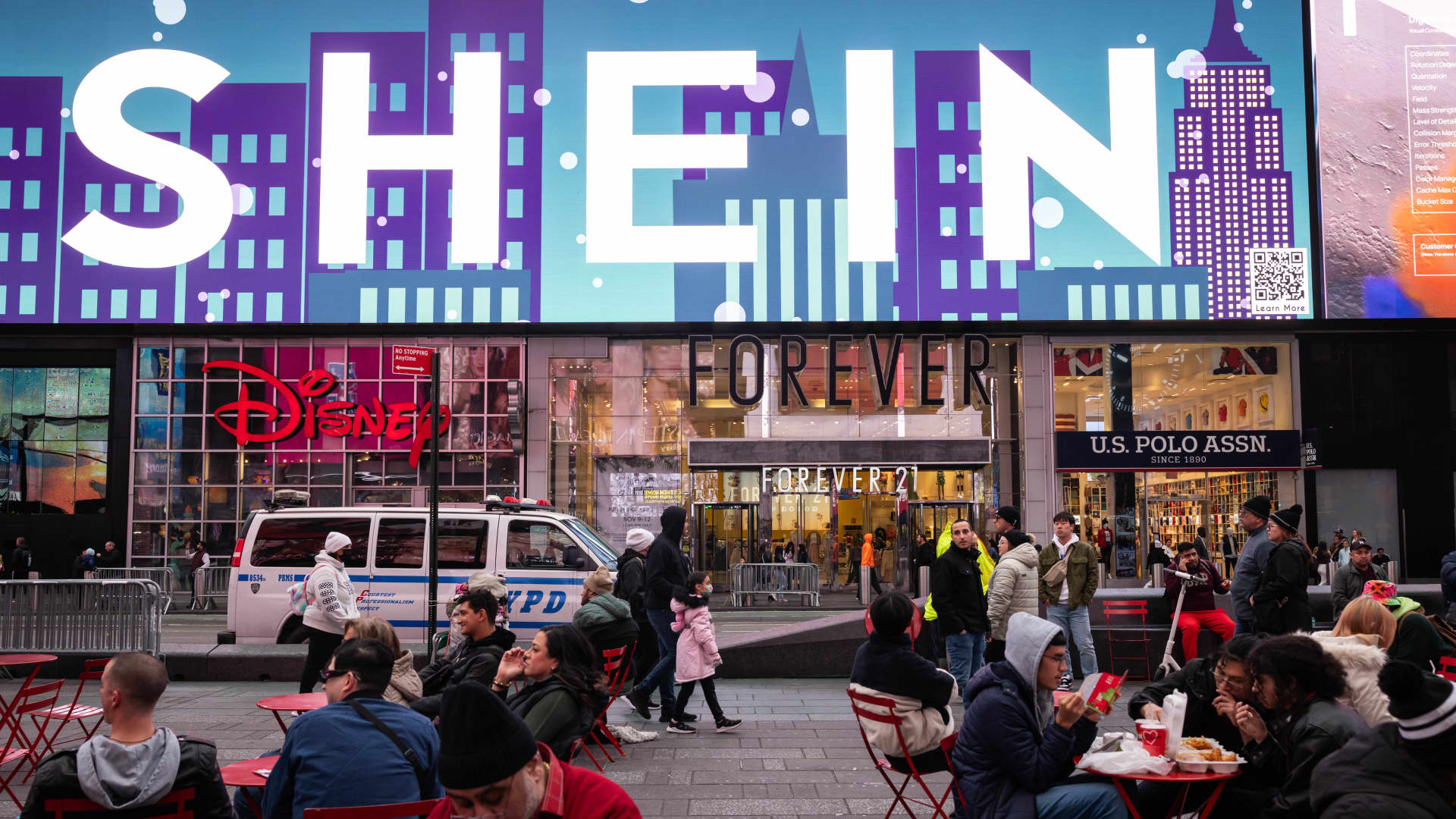Shein has confidentially filed to go public in the U.S. as the Chinese-founded fast-fashion juggernaut looks to expand its global reach with a long-rumored initial public offering, CNBC has learned.
The retailer was last valued at $66 billion and could be ready to start trading on the public markets as soon as 2024, people familiar with the matter said Monday.
It is unclear how much the company is currently worth, but its valuation has been a central point of debate among Shein and the advisors it’s working with, people familiar with the matter said.
A confidential filing is common, as it allows companies to communicate with the U.S. Securities and Exchange Commission and make any necessary adjustments to their filings in private. Over the next few months, Shein will likely make tweaks to its paperwork and answer numerous questions from the agency. The filing will be made public once the company is ready to move forward with its IPO. At that point, those communications with the SEC and any adjustments to its paperwork will be released as well.
Shein has been on a meteoric rise over the past few years after it won over consumers across the globe with its fashion-forward designs, endless assortment and dirt-cheap prices. But Shein has faced a series of challenges along the way and faced accusations of using forced labor in its supply chain, violating labor laws, harming the environment and stealing designs from independent artists.
The company is currently under investigation by the newly formed House Select Committee on the Chinese Communist Party and has faced scrutiny over its ties to Beijing. Numerous lawmakers, including 16 Republican attorneys general, have called on the SEC to ensure Shein isn’t using forced labor in its supply chain before it’s allowed to start trading in the U.S.
In October, Marcelo Claure, the company’s newly minted group vice chair and former SoftBank CEO, told CNBC in an interview that Shein is cooperating with lawmakers and taking time to meet with them to explain the business. He said, “there’s no such thing as forced labor” in the Shein factories that he has visited. But the company has repeatedly acknowledged that forced labor has been found in its supply chain and noted that it’s taking steps to fix it.
As Shein grew from an obscure Chinese retailer into a global behemoth with headquarters in Singapore, it largely stayed in the shadows. It said and did very little publicly until this year, when it began to open up in an apparent attempt to prepare for a U.S. IPO.
With Chinese CEO Sky Xu still at the helm, Shein tapped former Bear Stearns investment banker Donald Tang to be its executive chair and public face earlier this year. It has hosted a series of well-publicized pop-up events, sent influencers to its Chinese factories in a poorly received public relations campaign and courted the business press with splashy parties that featured its independent designers and other friends of the company.
Shein has worked hard to beat the many negative accusations that have come to define the company and has made its executives available for interviews as it worked to change the narrative.
Recently, it acquired about one-third of Sparc Group — a joint venture that includes brand management firm Authentic Brands Group and mall owner Simon Property Group — and in doing so, made a powerful U.S. ally that could help legitimize the company in the eyes of U.S. regulators.
As part of the deal, Shein has partnered up with former rival Forever 21 to unveil a co-branded clothing line that will see Shein design, manufacture and distribute the clothes primarily on its website. Shein has been hosting pop-up events inside of Forever 21’s stores.
Shein still has more work to do before it can win the trust of U.S. regulators. Beyond its myriad of issues, its CEO remains a mysterious figure who doesn’t give interviews or speak publicly about the company. The practice is a major departure from other firms that are publicly traded in the U.S., which regularly make their CEOs available. In October, the company did not tell CNBC whether Xu is still a Chinese citizen.
The company has tapped Goldman Sachs, JPMorgan and Morgan Stanley to be the lead underwriters on the offering, the people said.
Shein declined to comment. Goldman Sachs, JPMorgan and Morgan Stanley did not comment.
Earlier Monday, Chinese media reported on Shein’s filing.
Don’t miss these stories from CNBC PRO:
- The S&P 500 is starting to form a ‘cup and handle’ pattern. How to watch for the potential breakout ahead
- Bank of America sees the S&P 500 rising to 5,000 next year, anticipates a ‘stock picker’s paradise’
- Morgan Stanley is bullish on this emerging AI trend — and names 6 stocks to play it
- These are Wall Street’s favorite Warren Buffett stocks
